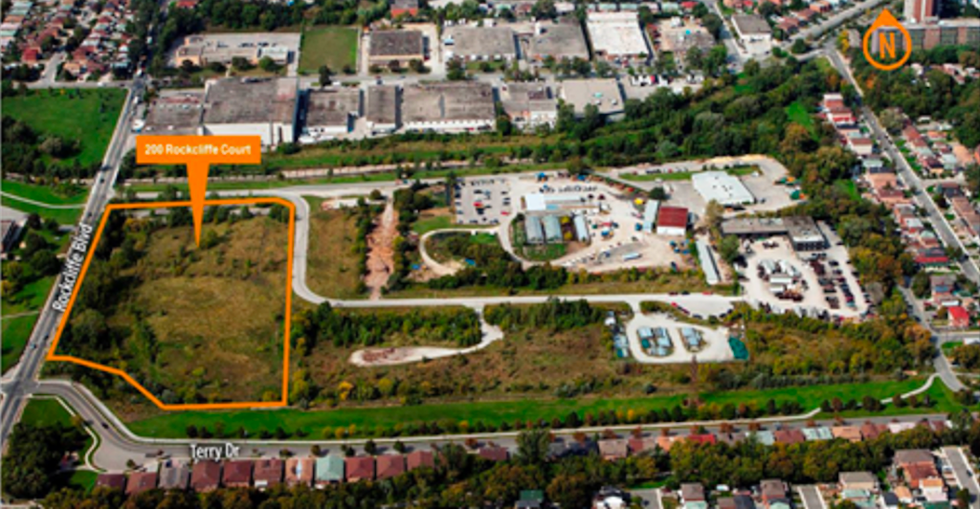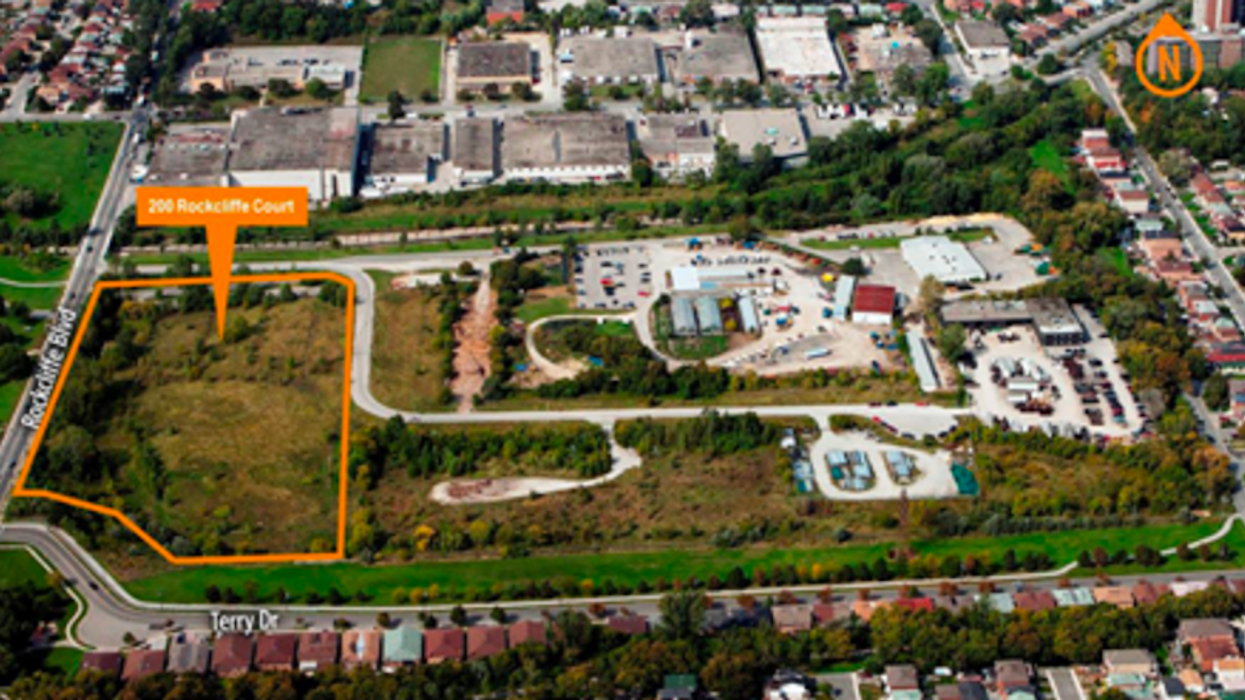
UPDATE: Mayor John Tory says he cannot stop the sale of floodplain-adjacent green space in the Rockcliffe-Smythe neighbourhood to a meat-packing plant, despite residents’ repeated requests for his help.
But the Black Creek Alliance says it will continue to protest the sale while taking action. It's now calling on Toronto’s integrity commissioner and office of the ombudsman to investigate the handling of the transaction.
"We won’t be bullied and will not back down. Reneging on the deal with St Helen's Meat may be costly for the City of Toronto, but it's a small price compared to the price that the people of Toronto pay when their city government and regional agencies refuse to manage and mitigate inevitable future flood risk,” says the Alliance in a statement.
Young families have built up a once-neglected neighbourhood. They somewhat gentrified it. They beautified it. They increased its value. Now they believe their efforts — and neighbourhood — are about to be thwarted by a meat-packing plant.
Just north of the tracks from Toronto’s trendy neighbourhood the Junction, you'll find a community known as Rockcliffe Smythe. And as Toronto housing prices soar, it has become known as one of the last affordable areas.
Rockcliffe Smythe has always been working-class, originally comprised of railway workers and slaughterhouse employees. With an Urban Heart score of 33, it sits in the bottom-third of neighborhoods in Toronto, considered a Neighbourhood Improvement Area.
Today it struggles to shed its identity as a low-income community in the midst of an industrial wasteland.
Some nearby industrial sites have given way to commercial properties. Most notably, the former Canada Packers plant at Keele and St. Clair, which is now the Stockyards Shopping Village. Also, the Symes Transfer Station was transformed into the beautifully restored and repurposed event centre The Symes. Other businesses continue to spread through the area.
But there is one new establishment its residents don’t want: The meat-packing plant.
A proactive group of residents, the Black Creek Alliance, call the imminent purchase of green space at 301 Rockcliffe Blvd. (200 Rockcliffe Ct.) by St. Helen’s Meat Packers Ltd. just another example of the environmental discrimination its ward has always endured. Currently, CreateTO, a real estate affiliate of the City of Toronto, owns the land.
Black Creek Alliance cofounders, Tanya Connors, Deane O’Leary, and Erin Ronnigan, say paving over and building a 55,000 square foot storage facility — on contaminated land in the middle of a floodplain — is a step wrong direction. They say the area needs naturalization and flood mitigation — not pavement, steel, freight traffic, and coolant chemicals.
Over the past few years the Alliance, as well and the community, have been working with the City of Toronto, Hydro One, and other green space stakeholders in the area to reclaim and rejuvenate this parcel of land.
Dreams of turning this land into a community park or a West End version of the “Evergreen Brickworks,” where shattered by news it would become a massive storage facility. A surprise to most residents, as they were not consulted about the decision and say the process was not transparent.
The site, once home to a landfill and sewage treatment plant, was only just beginning to naturalize itself again.
While St. Helen’s says it is working on flood mitigation measures, and 100 jobs will be created, the Black Creek Alliance see the purchase of this temporary green space as an end to their hopes of reclaiming it for their inescapably res-industrial community.
The proposed facility will be located directly across from Rockcliffe Middle School. There are also three other schools nearby.
Ward 11 Councillor Frances Nunziata had just called for safer measures in the area. In a bizarre twist of fate, “safer measures” may now include an industrial compound and a steady stream of trucks on Rockcliffe Rd.
Environmental activist Johnny Dib says, “There are two futures: This could become victim to the environmental injustice that this area has been subject to for decades. Or it becomes one of the most beautiful places in Toronto.”
While the St. Helen’s storage facility seems inevitable, the Toronto and Reginal Conservation Authority will meet on March 23, at 9:30 a.m. to vote on the matter. They will have the final say and the Black Creek Alliance is hopeful that they will prevent the severance of the land.
For more information you can visit the Black Creek Alliance Facebook or Twitter.





















